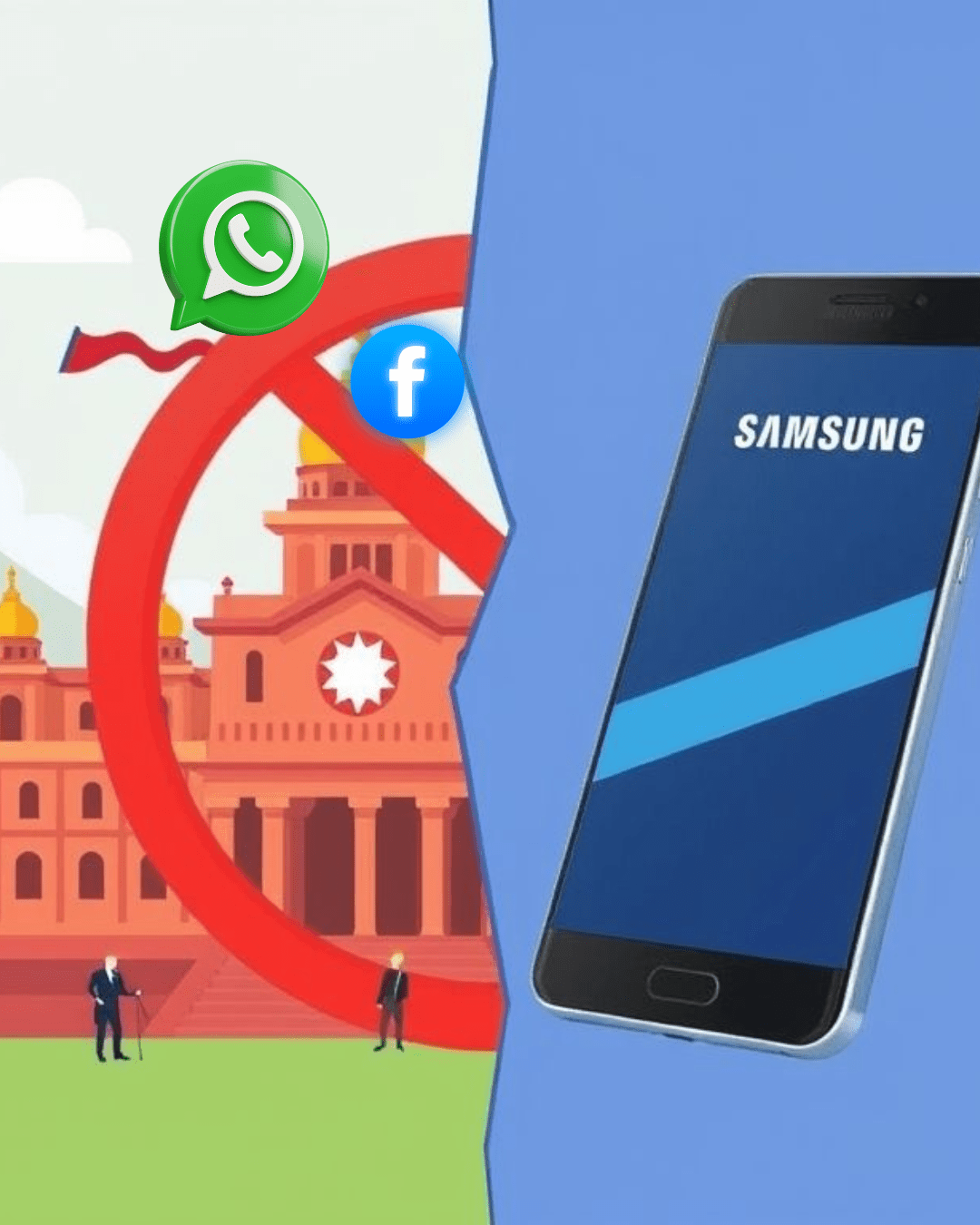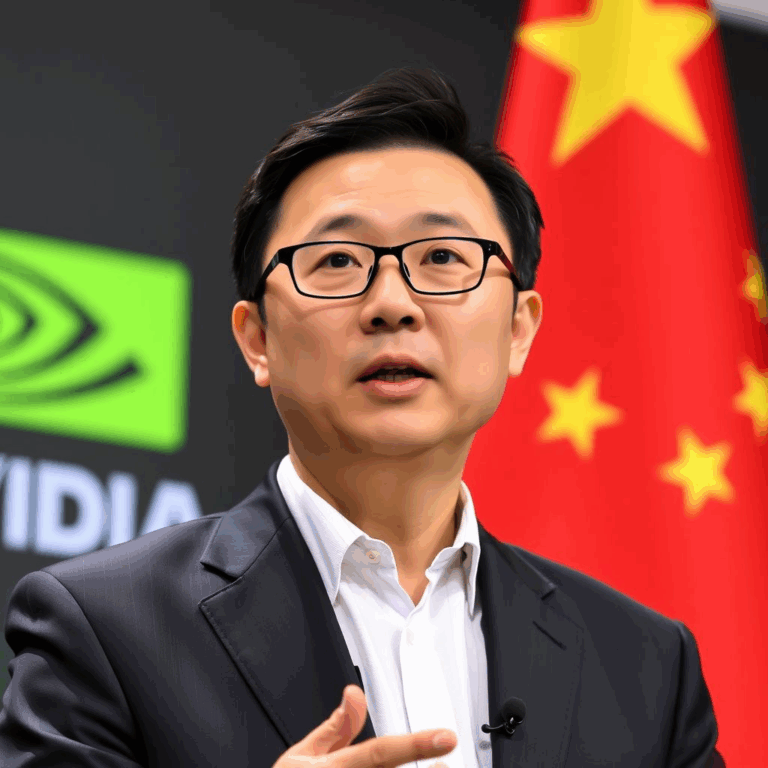Introduction
In a surprising turn of events, Nepal has imposed a sweeping ban on WhatsApp and Facebook, citing national security concerns, misinformation risks, and digital sovereignty. The move has triggered heated debates among citizens, businesses, and global observers, especially as Nepal positions itself as a growing hub for digital transformation in South Asia. Meanwhile, on the global stage, Samsung has unveiled the Galaxy S25 FE, its latest “Fan Edition” flagship smartphone, packed with AI-driven features, powerful hardware, and a competitive price tag aimed at taking on Apple’s upcoming iPhone 17 series.
The simultaneous news stories—Nepal’s clampdown on social media and Samsung’s global product launch—highlight the growing tensions between digital freedom, governance, and technological innovation in 2025.
Nepal’s Social Media Ban: What Happened?
On September 3, 2025, Nepal’s Ministry of Communication and Information Technology announced the suspension of WhatsApp and Facebook across the country, effective immediately. The ban was justified on grounds of:
- National Security: Authorities allege that encrypted platforms like WhatsApp are being misused for illegal financial activities, cross-border communications, and coordination of protests.
- Misinformation Control: The government argues that Facebook has failed to regulate the spread of political misinformation, hate speech, and fake news that destabilize local governance.
- Digital Sovereignty: Nepal is exploring its own local social networking platforms to reduce reliance on U.S.-based tech giants.
The ban has been enforced by directing all major internet service providers (ISPs) to block access to these apps.
Public Backlash and Impact
The move immediately sparked public protests and digital unrest. WhatsApp is widely used in Nepal for personal communication, small business transactions, and community groups. Facebook, with over 12 million active users in Nepal, is a primary tool for news, commerce, and political engagement.
Small businesses relying on WhatsApp for orders and customer service have been hit hard. Many young entrepreneurs who use Facebook Marketplace to sell local crafts and products also reported major disruptions.
An activist group in Kathmandu called the ban “an assault on free speech” and organized peaceful demonstrations demanding reinstatement.
Regional and International Reactions
Neighboring India, which has also debated restrictions on foreign apps in the past, is closely watching Nepal’s move. Digital rights organizations like Access Now and Electronic Frontier Foundation (EFF) have criticized the ban, urging Nepal to adopt regulation and transparency instead of outright restrictions.
The U.S. State Department issued a brief statement saying it is “concerned about digital rights and freedom of expression in Nepal.”
The Broader Context: Tech Cold War
Nepal’s decision echoes broader global patterns where countries are increasingly asserting digital sovereignty. From India’s ban on Chinese apps in 2020 to the U.S. chip export restrictions on China in 2025, governments are redrawing the map of the internet and technology access.
For Nepal, the ban could also be part of a geopolitical strategy—seeking to balance foreign influence while nurturing domestic tech ecosystems.
Samsung Galaxy S25 FE: A Major Global Launch
While Nepal battles social media tensions, the tech world celebrated a major product launch on September 4, 2025. Samsung officially introduced the Galaxy S25 FE (Fan Edition), a smartphone designed to bring premium flagship experiences to a broader audience at a lower price point.
Galaxy S25 FE: Key Specifications
- Display: 6.5-inch Dynamic AMOLED 2X, 120Hz refresh rate
- Processor: Exynos 2500 (global) / Snapdragon 8 Gen 4 (U.S.)
- RAM/Storage: 8GB/12GB RAM with up to 512GB storage
- Cameras: Triple-lens system (50MP main, 12MP ultrawide, 10MP telephoto with 3x zoom)
- AI Features: On-device AI photo editing, real-time translation, generative text-to-image wallpaper creation
- Battery: 4,800 mAh with 45W fast charging
- Software: One UI 7 based on Android 15
AI-Powered Features in the Galaxy S25 FE
The biggest highlight is Samsung’s integration of AI capabilities:
- Live Translate 2.0: Offers near-instantaneous translation of voice and video calls.
- Generative Photo Editing: Users can remove or add objects to photos seamlessly.
- Galaxy AI Assistant: Built to rival Apple’s rumored AI features in the iPhone 17.
- Battery Optimization via AI: Learns user habits and dynamically adjusts power usage.
Samsung is positioning the S25 FE as an affordable AI smartphone, directly competing with both Apple and Chinese brands like Xiaomi and Oppo.
Market Positioning and Pricing
The Galaxy S25 FE is priced at $599 globally, making it far more affordable than the $999+ Galaxy S25 Ultra. Samsung aims to target mid-tier consumers who want flagship features without the premium cost.
In markets like India, Brazil, and Southeast Asia, Samsung is expected to aggressively promote the S25 FE during upcoming festive sales—directly clashing with Amazon and Flipkart campaigns.
Expert Opinions
- Dr. Ravi Shankar, Tech Policy Analyst: “Nepal’s ban risks isolating its citizens from the global digital economy. In the long run, this may harm innovation and entrepreneurship.”
- Angela Park, Market Researcher at Counterpoint: “Samsung’s S25 FE could be a game-changer in the mid-tier smartphone market. Its AI-driven features set a new standard for affordable devices.”
Future Outlook
- For Nepal: The government is reportedly considering the rollout of a state-backed messaging app, but adoption remains uncertain. Citizens are likely to turn to VPNs and alternative platforms like Signal and Telegram.
- For Samsung: The S25 FE strengthens Samsung’s position ahead of Apple’s September 9 event. The timing is crucial as consumers weigh options between the new iPhone 17 and Samsung’s AI-powered Galaxy lineup.
Conclusion
The juxtaposition of Nepal’s social media ban and Samsung’s S25 FE launch captures the two sides of our digital age—restrictions on communication versus innovation in connectivity. While Nepal grapples with questions of security and freedom, Samsung pushes forward with cutting-edge technology aimed at empowering users worldwide.







